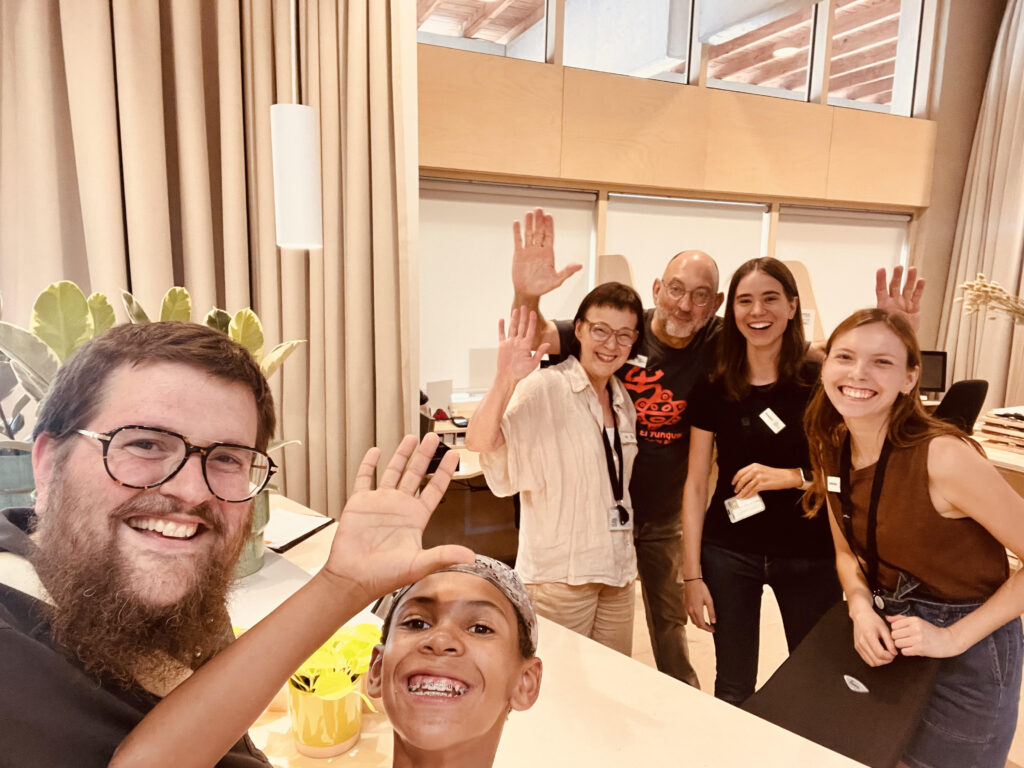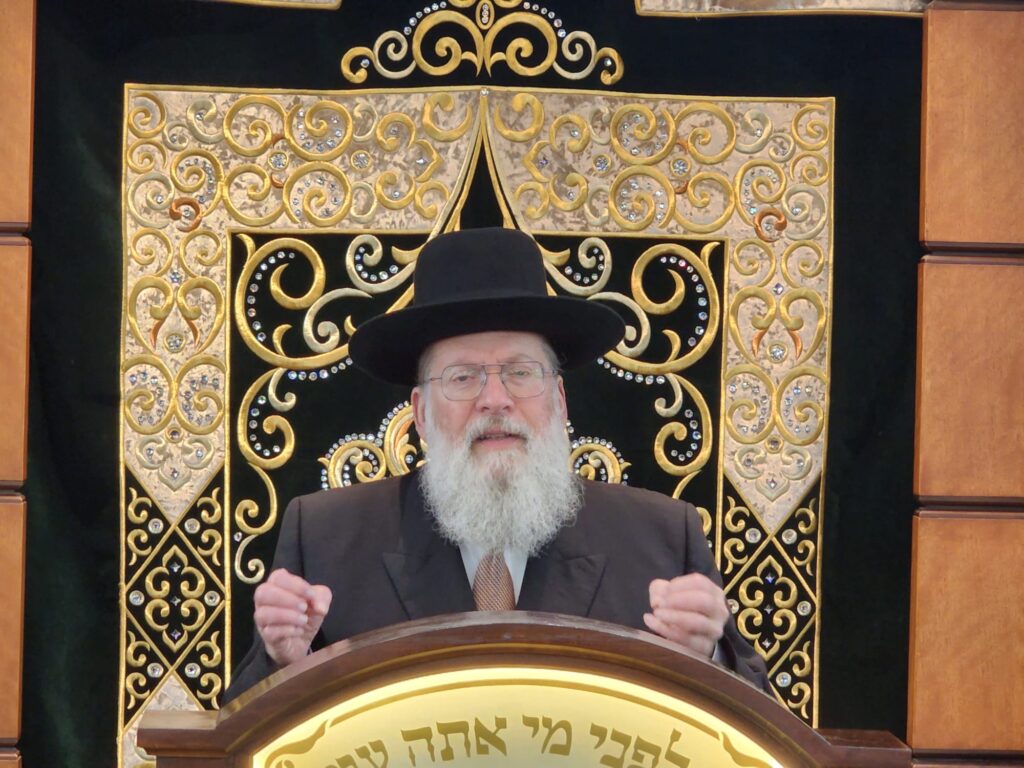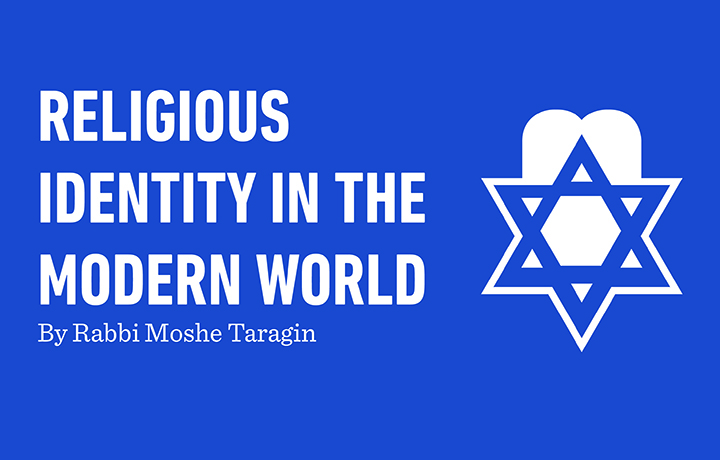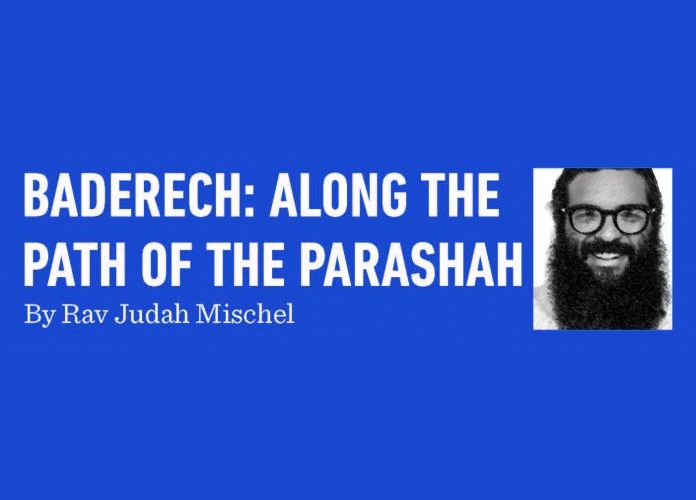Musings Of A Shliach From Montana
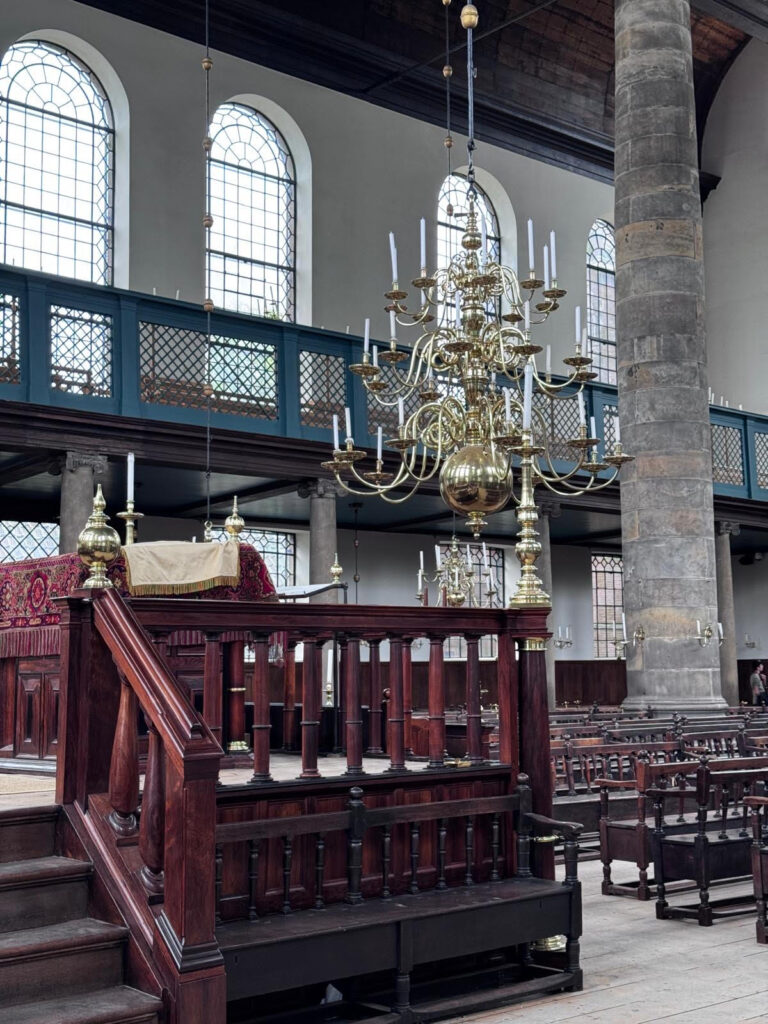
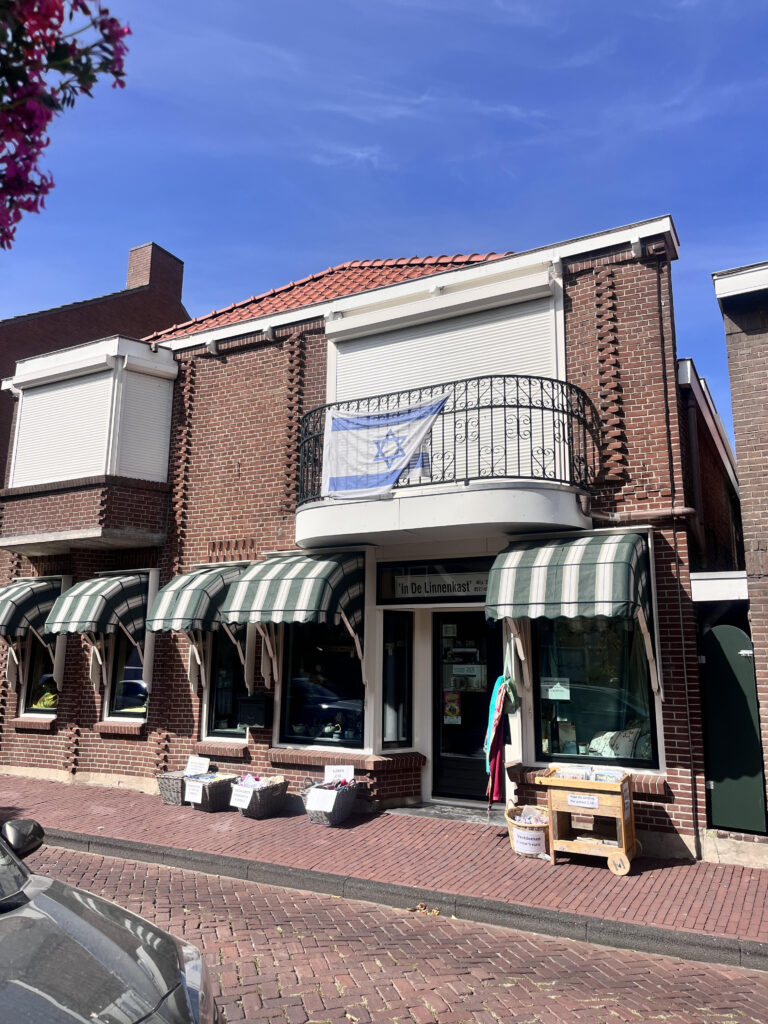
One of the hundreds of homes in Urk with an Israeli flag
On Sunday, the 7th of Elul, or as we called it during childhood, “A vuch in Elul,” I marked the 99th birthday of my Bubbe Esther Goldman of blessed memory. She passed away over a decade ago, but since she was my grandmother and mentor, she remains vivid in my mind and guides me in many moments of indecision.
She was wise, witty, blunt, and deeply kind, especially to those who fell through the cracks. Her older brother was my Great Uncle Nison, father of Larry Gordon of this venerable newspaper, and it’s that family connection that led me to write a weekly column in the 5TJT.
Bubbe Esther commented on all aspects of life. She opined about everything she saw, every person with whom she interacted, every experience both at home and at the workplace, on the subway, and even just making the rounds on Kingston Avenue. And she didn’t shy away from sharing her viewpoint.
Since I just returned from Europe, I wanted to tell her all about my trip and what it’s like to be an identifiable Jew in Europe in 2025, but since I’m unable, I will share it with you. But before I begin, I want to warn you that not everyone will agree with my observations and may even be “triggered” by what I write. Please read to the end before freaking out, and I welcome your feedback, positive or negative, via email to: [email protected] and I will do my best to respond to each of you.
Here we go:
Normally, I travel with a cap so I have it with me for davening and bentching. Yet, the moment we landed at Schiphol Airport in the Netherlands, I wore my yarmulke and tzitzis hanging out for the two weeks we traversed Belgium and the Netherlands. My son Menny did the same. To me it was an act of defiance. I’m not saying I would do the same in Pakistan or Algeria, but in a country that is officially enlightened and Jews are still legal citizens, I wasn’t going to let them take my Judaism away, even a little bit.
So, what was the result? We crisscrossed the streets of Ghent, Bruges, Knokke, Giethoorn, Rotterdam, Amsterdam, Amstelveen, Urk, Beekse Bergen, Harderwijk, Willemstad, and other locations and had no problems at all. Yes, we passed thousands of Muslims in full garb, including some with necklaces that had the map of Israel with the colors of the Hamas flag, but none said any unpleasant words to us or made us feel unwelcome. I can’t explain why that is; obviously, there is real hatred and many troubling incidents in Europe, but this was our experience. Let me be clear: traveling anywhere these days as an identifiable Jew versus doing the same with no identifiable Jewish identity is night and day. When they can see your identity by your dress, it can become an instant issue.
People in Europe (or at least Holland and Belgium) don’t smile very much. Sure, you can see them laughing with their friends at the coffee shop, but when you check out at the grocery store, there’s no bubbly greeting from the clerk like we’re used to in America. That threw us off guard since we’re used to that sort of down-home politeness that is common in America. After a few days, we realized it was a cultural thing. They don’t smile unless there’s a “real reason” to do it. Once you start conversing, most turn out to be friendly.
Yet, despite the blank looks on their faces, we met many wonderful people on our visit. We met an owner of a gift shop in Utrecht who isn’t Jewish, but loves Jews and Israel and even spent time living in Israel when she was younger. We met wonderful people working at the Botanical Gardens in Brussels who went against the rules to let us enter even though it was past the official entry time of 5:00 p.m. I met a wonderful woman of Russian-Ukrainian descent who checked me in at Rent-a-Car and was super kind and helpful and went out of her way to take care of our needs. In Urk, a town on Lake Ijsselmeer that is in solidarity with Eretz Yisrael, we met Christians who support Israel in any way possible, including by sending significant financial support. After October 7, 50% of the town had Israeli flags hanging from their homes, and while it’s a bit less now, there are still hundreds across the town. People on the street were honored to meet a Jew and tell us “Shalom” and how much they love and support us. We also met a group of local gentiles who were eating dinner at a kosher restaurant in Amsterdam to show their support for Dutch Jewry.
I know the minhag is to see the world through a horrible lens based on negative media reports and specific incidents, but we must be able to see the good in humanity lest it turn us into cynical souls.
There is a concept in Judaism referred to as Al tisgaru b’umos, which means not to provoke our gentile neighbors. Sadly, some Jews, especially since October 7th, have chosen to become professional agitators, showing up at anti-Israel demonstrations with Israeli flags and shouting down the protestors. In my opinion, it’s not the Jewish way. You want to make a Jewish parade or solidarity gathering for Israel? Beautiful. They’re disrupting Jews from entering our own shuls or schools? Defend yourself to the best of your ability with every mechanism available to you. But showing up at their events and showing them that you’re tough in the JDL style is a form of agitation and not something we are meant to do.
There are people who carry the respected title “rabbi” who agitate all the time, including in Europe. It looks like they are being attacked and maybe they are, but they are instigating the trouble. We need to lobby, work with local governments and law enforcement, and do what Hillel Neuer does in Geneva with UN Watch: writing to local newspapers and at times recognizing that certain countries are no longer friends of the Jews and moving elsewhere. But the agitators who scream and shout epithets and get in people’s faces are not only distasteful, these methods are not in keeping with the Torah, “whose ways are ways of pleasantness and all its paths are peace.”
Everyone in Europe rides bikes. Cars are like the third or fourth form of transportation. From the youngest of children to the advanced senior citizens, everyone gets around on bicycles. In addition, there is very little consumerism. They are way ahead of us in caring for the environment. They don’t use many disposables at all, which is great. They aren’t workaholics and it’s actually concerning how little they work. They seem to be good custodians of Hashem’s world and are good at keeping themselves in impressive physical shape.
Yet, they aren’t perfect. Smoking was so widespread it felt like Israel. Also, they don’t eat a lot of fruits and vegetables. Many restaurants don’t even offer it as a side dish because, as one waiter told me: “We would throw out boxes of produce each night” as few customers order veggies.
The Jewish communities are strong and beautiful. In Antwerp and Amsterdam, there are many shuls, schools, mikvahs, kosher food in the groceries, kosher restaurants, and a healthy Jewish presence. We saw plenty of Chassidish adults and children riding their bikes in Antwerp and Jews of all flavors walking the streets of The Netherlands, visiting the Portuguese Synagogue in Amsterdam. The Chabad shluchim, hareidi kehillos, mainstream Orthodox rabbinate, all contribute to create vibrant Jewish life, despite the challenges they encounter daily. We ate at eight different restaurants, with almost all of them having amazing food, kind staff, warm Jews, and a sense of Dutch/Flemish Jewish pride. While we always hear the bad news, we rarely hear of the beautiful Jewish experience that is alive and well in Europe. The strength of the Jewish communities in Europe is heartwarming and even inspiring. At one of the eateries, we ordered omelets and the Jew behind the counter said, “I’m not Shomer Shabbos, so if you’re okay turning on the fire, I can make it happen.” There’s beauty everywhere and (as Chavie taught me), it’s our job to find it.
The police are not noticeable in Western Europe. I didn’t see a single “highway patrol” vehicle. Nor did I see anyone being pulled over. I don’t know what it means, all I know is what I saw. It was nice to drive on roads and visit areas with just a few cops here and there riding bicycles and scooters.
Yet, Europe isn’t free. Many American news sites, including CNN and Fox, are blocked at the various Airbnb’s. My mortgage company’s website and my Bozeman bank site were not allowed. And even the websites that are permitted needed my “consent” every time I logged on. So, while there were no police on the streets, it’s very much a police state, making me grateful for the freedoms we still have in America.
On the subject of Muslim immigration, I believe Europe is allowing the hatred of the Muslim population vis-à-vis Israel and the local Jews to dictate their policy toward Israel and toward protecting the Jews in their country. The government allows the Muslims to create a hostile attitude towards Klal Yisrael. It’s not a hidden hate—it’s out in the open, supported by Muslim leaders and Imams who preach it every Friday at the mosque.
As our boat captain ferried us near the Anne Frank House, I asked him if he thought Europe had learned the lessons from the story of Anne Frank. He said unequivocally “I don’t think so.” We shouldn’t judge immigrants based on their religion, but we should judge them based on the values they bring with them and whether that culture includes hate and disrespect.
Europe is not very accommodating toward Americans. Exchanging dollars for Euros took me a week. Finding an adapter for my laptop took me ten days. The roads are covered with European cars, some Asian cars, lots of Teslas (manufactured in Germany), and only a handful of American cars. We should do a better job of exporting American products across the Atlantic. If our country is inundated with products from all over the world, we should try to get our stuff out there too.
Unfortunately, I suspect that the religious/secular divide that is growing in Israel is affecting Israelis when they travel abroad. While, Baruch Hashem, this has not played out with the hundreds of Israelis that came to our shul in Bozeman, I did see it during our trip, and it’s disturbing. Sadly, many Hebrew-speaking Israelis were cold and uninterested in opening up a conversation with me, and I found that to be heartbreaking. We work so hard to bring people together, to keep our beautiful nation united, but the political divide and the “serving in the army” issue is creating painful barriers that I felt for the first time on this trip.
Chavie and I believe that travel is a great form of education. We’ve taken the kids across the United States, but also to Spain, Gibraltar, France, Morocco, Israel, South Africa, Canada, Mexico, and now to Holland and Belgium. In each place, we learn about the locals, the language, the culture, the realities of life, the good, the bad, and the ugly. And we learn about people, fellow human beings that Hashem created with a purpose. Hopefully, along the way, we make them fall in love with Jews as a direct result of meeting us. I understand that it’s a luxury to travel, but it’s something that we prioritize as a necessity.
One thing I learned is there’s no place like America and the freedoms enshrined in our Constitution. The bounty in the U.S. is unparalleled. The berachah of this Medinah shel Chesed is unique and should be celebrated and we can learn a lot from Europe, helping us to enhance our lifestyle, our health, our balance, and learning what not to do here at home. That’s it for now. Have a rockin’ Shabbos! n
Rabbi Chaim Bruk is co-CEO of Chabad Lubavitch of Montana and spiritual leader of The Shul of Bozeman. For comments or to partner in our holy work, e-mail [email protected] or visit JewishMontana.com/Donate.





